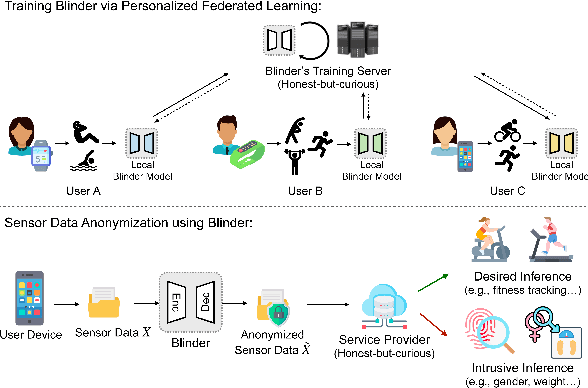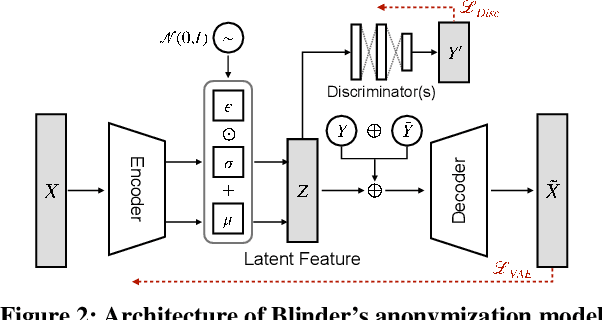Blinder: End-to-end Privacy Protection in Sensing Systems via Personalized Federated Learning
Paper and Code
Sep 27, 2022



This paper proposes a sensor data anonymization model that is trained on decentralized data and strikes a desirable trade-off between data utility and privacy, even in heterogeneous settings where the collected sensor data have different underlying distributions. Our anonymization model, dubbed Blinder, is based on a variational autoencoder and discriminator networks trained in an adversarial fashion. We use the model-agnostic meta-learning framework to adapt the anonymization model trained via federated learning to each user's data distribution. We evaluate Blinder under different settings and show that it provides end-to-end privacy protection at the cost of increasing privacy loss by up to 4.00% and decreasing data utility by up to 4.24%, compared to the state-of-the-art anonymization model trained on centralized data. Our experiments confirm that Blinder can obscure multiple private attributes at once, and has sufficiently low power consumption and computational overhead for it to be deployed on edge devices and smartphones to perform real-time anonymization of sensor data.
 Add to Chrome
Add to Chrome Add to Firefox
Add to Firefox Add to Edge
Add to Edge